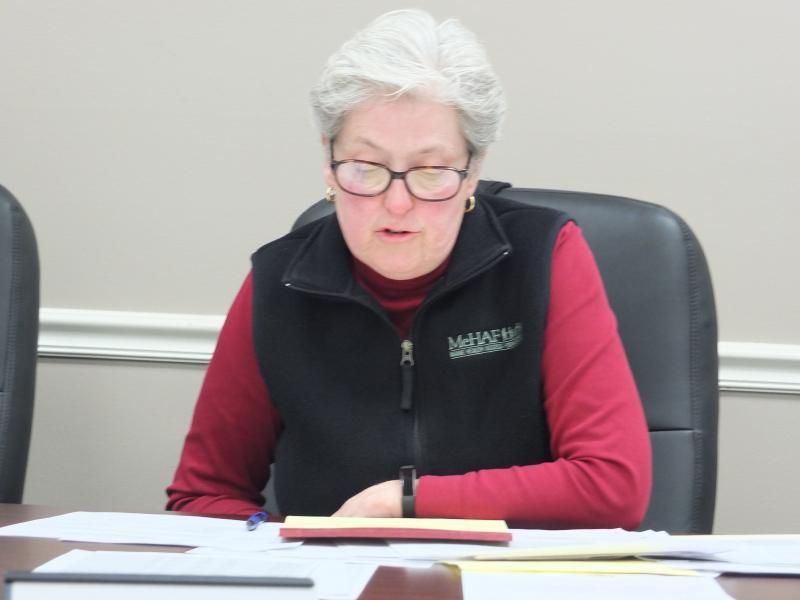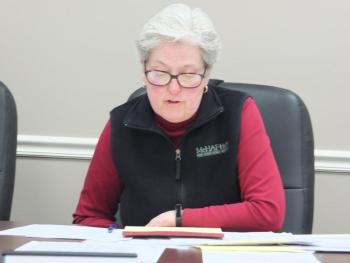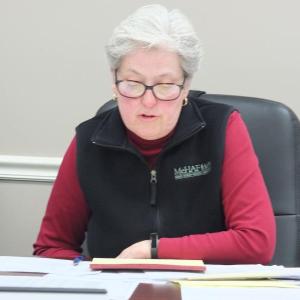Marijuana described as complicated business; Knickerbocker plans parking for 19 By-Way project
Complexities towns face over recreational and retail sales of marijuana were part of the discussion for Boothbay Harbor selectmen March 27.
Selectman Wendy Wolf attended a Maine Town, City and County Management Association (MTCMA) meeting on March 24 in Bangor to listen to keynote speaker Bill Efting, a former town manager in Frisco, Colorado speak about his state's experiences.
Wolf said Efting told those at the MTCMA meeting that, although Colorado's law differs from Maine’s, deciding how to handle the issue within a town in any state is a complicated business and he advised attendees to take their time.
For instance, Southport, which voted at a March 6 town meeting to become a “dry town” regarding the retail sale of marijuana, would be affected by its citizens buying pot elsewhere and bringing it back to the island, Wolf said. Other concerns include the arrest of drivers under the influence of marijuana, which can be hard to prove if the marijuana is in edible form.
Maine, and Boothbay Harbor's, position allows time to figure out a stance regarding ordinances and issues. “The state has placed a moratorium until Jan. 31, 2018. As a town, we're allowed to enact a six-month moratorium. We don't feel a need to do that at this point in time. We, as a board, feel we wanted to educate ourselves,” Board Chair Denise Griffin said.
She urged those present to attend a 6 p.m., April 26 meeting at the Boothbay Region YMCA. Edward Kelleher, an attorney with Portland law firm Drummond Woodsum, will speak about the new law and what it means to municipalities. “We're hoping to educate our local residents and neighbors and get resident input and feedback,” Griffin said.
19 By-Way project
Architectural designer Zander Shaw from Knickerbocker Group presented a revised traffic plan for the 19 By-Way project. The revision was prompted by concerns regarding the availability of six parallel parking spaces and sidewalk access in front of the current building, and access to the footbridge, particularly during the busy summer and fall seasons, and during events like Harbor Fest and Gardens Aglow.
Shaw said the traffic plan is divided into three phases. Phase 1, demolition, will take place in April and May. Access to the sidewalk and the parking spaces in front of the bowling alley will be blocked for a couple of days while workers remove the covering currently over the sidewalk. Half of the sidewalk will become part of the construction site. The other half will be reconstructed to conform to the Americans with Disabilities Act and will be available for pedestrian traffic. A certified asbestos removal team will remove tiles containing the material and the building will be deconstructed by “folding it back on itself',” Shaw said.
Phase 2, demobilization, will take effect when the building has been demolished in May. The crew will leave the area secured by chain link fencing. Shaw told selectmen that passersby will see a granite ledge, “much like the coast of Maine” through the fence. The crew will clean up any graffiti that has proliferated through the years. The area will remain quiet throughout the summer, with the six parking spaces in front of it and the sidewalk accessible. Parking spaces behind the site will be available to retail businesses under an agreement with owner Rahul Anand. The footbridge will be accessible.
Shaw said the third phase, construction, will begin after Harbor Fest, which runs through Sept. 17; construction will continue through spring 2018. For the majority of this phase, sidewalk and parking areas will be accessible, exception on the days they are needed for steel-framing which Shaw estimated would take about a week, and for masonry work. He told selectmen that site traffic will be via Granary Way; there are no planned street closures.
“We're going to schedule masonry work during Early Bird and Gardens Aglow time to be done on the other sides of the building,” and there will be parking and sidewalk access, Shaw said.
Wolf moved that the board approval the traffic plan contingent on the discussions that have taken place for preservation of parking and a pedestrian walkway. “If there is any change to the design that alters the understanding we have about preservation of parking and pedestrian walkway in Phase 3, we will need to revisit the decision.”
Selectman Russell Hoffman seconded the motion and the board approved it.
Event Date
Address
United States


























